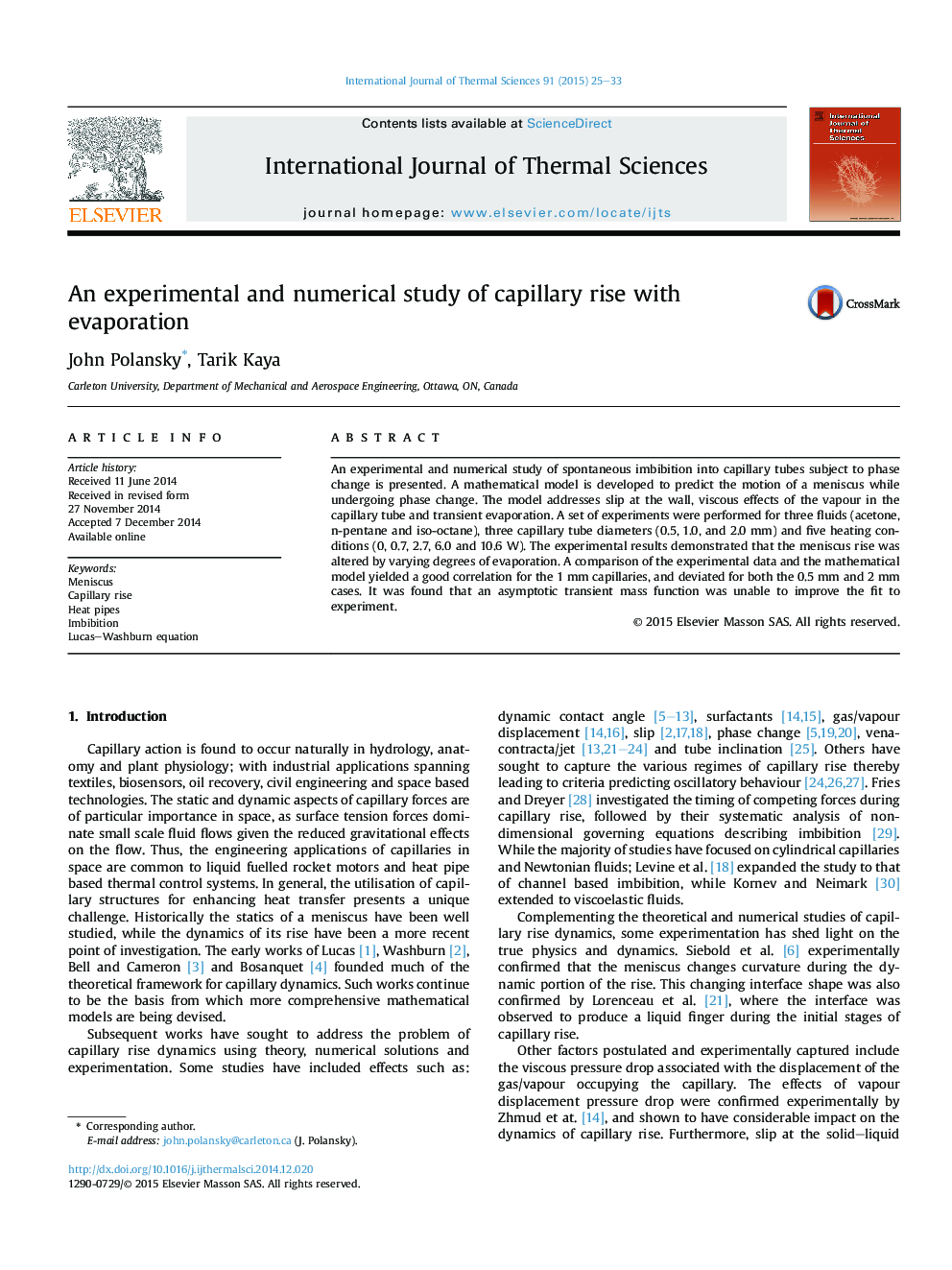| Article ID | Journal | Published Year | Pages | File Type |
|---|---|---|---|---|
| 7060957 | International Journal of Thermal Sciences | 2015 | 9 Pages |
Abstract
An experimental and numerical study of spontaneous imbibition into capillary tubes subject to phase change is presented. A mathematical model is developed to predict the motion of a meniscus while undergoing phase change. The model addresses slip at the wall, viscous effects of the vapour in the capillary tube and transient evaporation. A set of experiments were performed for three fluids (acetone, n-pentane and iso-octane), three capillary tube diameters (0.5, 1.0, and 2.0Â mm) and five heating conditions (0, 0.7, 2.7, 6.0 and 10.6Â W). The experimental results demonstrated that the meniscus rise was altered by varying degrees of evaporation. A comparison of the experimental data and the mathematical model yielded a good correlation for the 1Â mm capillaries, and deviated for both the 0.5Â mm and 2Â mm cases. It was found that an asymptotic transient mass function was unable to improve the fit to experiment.
Related Topics
Physical Sciences and Engineering
Chemical Engineering
Fluid Flow and Transfer Processes
Authors
John Polansky, Tarik Kaya,
